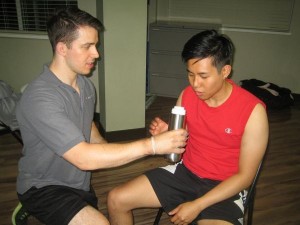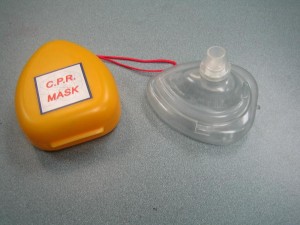Our instructors at San Francisco CPR will provide you with the best possible training for Basic and Advanced Life Support. With over 8 different programs (5 training courses and 3 re-certification classes) available all through the week, we are the only provider in San Francisco with a variety of schedules for trainees. If you have any problems with the times our classes our held, there are also private courses available upon request.
Certificates

Since all of our programs give trainees certification, we simply require students to have complete attendance and to pass the certification exam at the end of the program. The exam is usually a written and practical test, except for the program for the general public. This program is only has an optional skills test as a certification exam, one students can choose not to take (and not get certified in result).
Enrolment
Enrolment can easily be completed over the San Francisco website, with the online application. The form can be filled out at any time of the day, same if you plan on send an e-mail with inquiries or details of your application. You can also give us a call during business hours if you have any questions. Also, please visit us during regular business hours as well if you want to enrol in person.
Training courses in CPR

When you train in CPR, you can choose from either a basic or advanced course. Of the three basic courses, only one is is available for the general public, the other two and the advanced courses are all for healthcare providers.
The three Basic Life Support courses teach students about three basic skills: chest compressions, rescue breaths, and defibrillation (with an AED). First aid is included in all three of the programs. We teach trainees how to manage bleeding, choking, and burn injuries, to name a few.
- Basic Heartsaver CPR – general public program, 4 hours
- Basic Heartsaver CPR (C) – healthcare providers, 4.5 hours
- Basic Life Support for healthcare providers – 4.5 hours (re-certification 4 hours)
Advanced Life Support courses are only for healthcare providers. We require HCPs to have a Basic Life Support for HCPs training certificate before applying to any of the ALS programs. There is also a pre-test that the trainee has to pass before proceeding. The post-test is a written and practical exam.
ALS programs use the basic concepts of BLS and medical interventions to manage a victim of cardiac arrest. Arrest typically occurs because of pre-existing cardiac conditions in adults and respiratory problems in children. There are two ALS programs, both lasting two days long.
- Advanced Cardiac Life Support (ACLS) – 16 hours, management of adult victims
- Pediatric Advanced Life Support (PALS) – 14 hours, management of pediatric victims